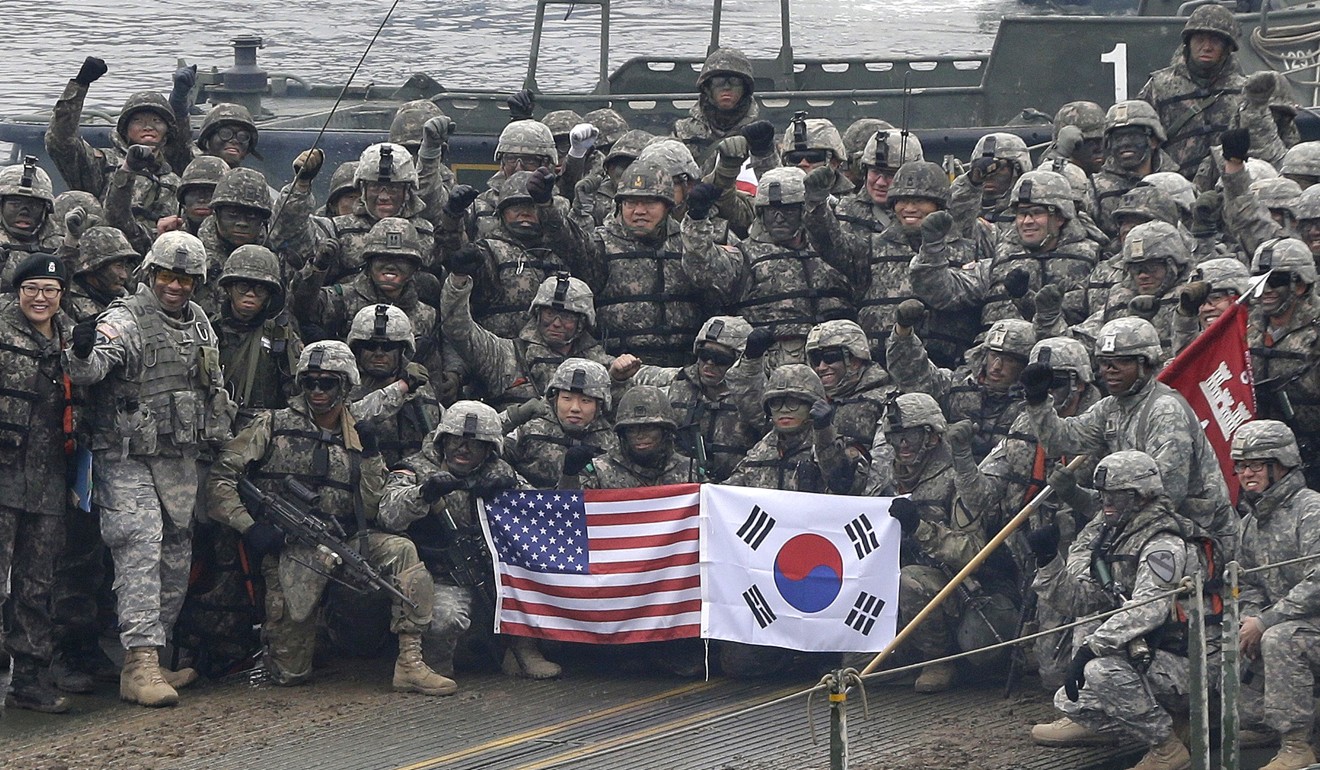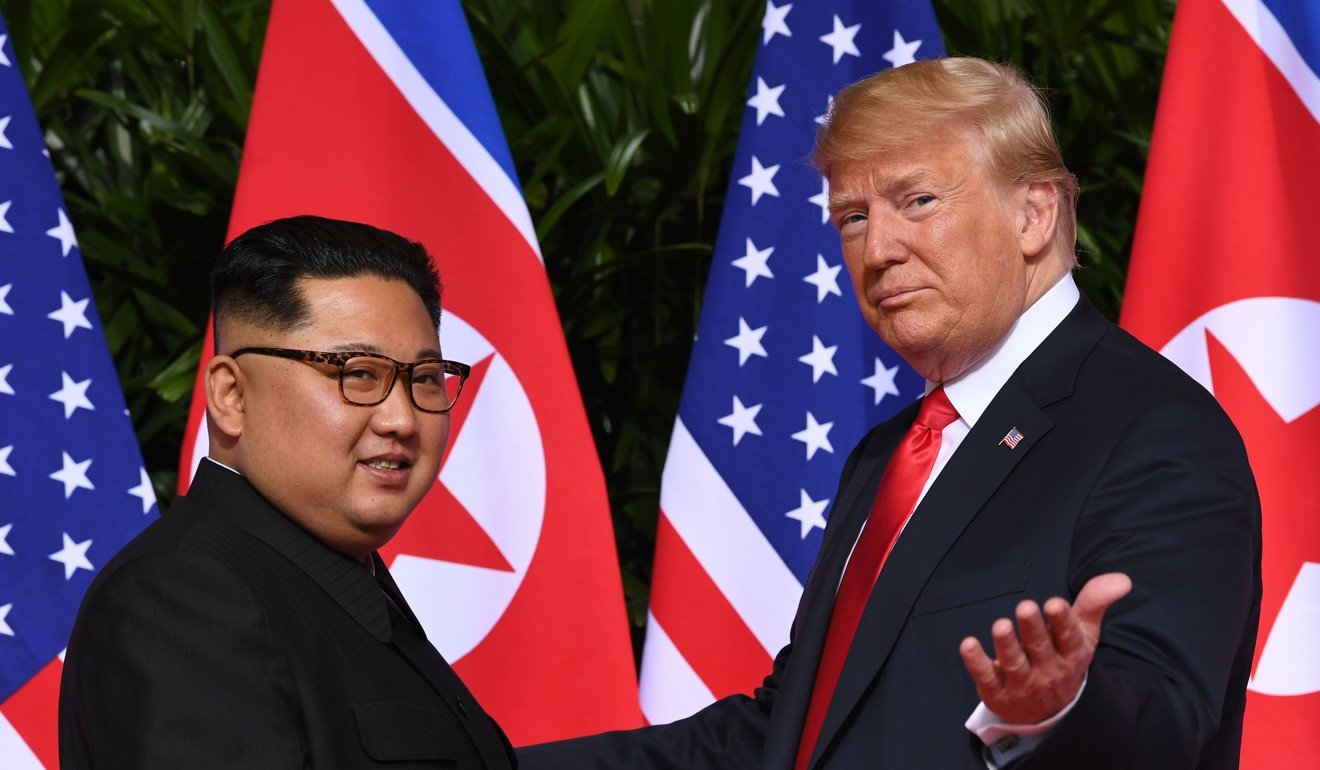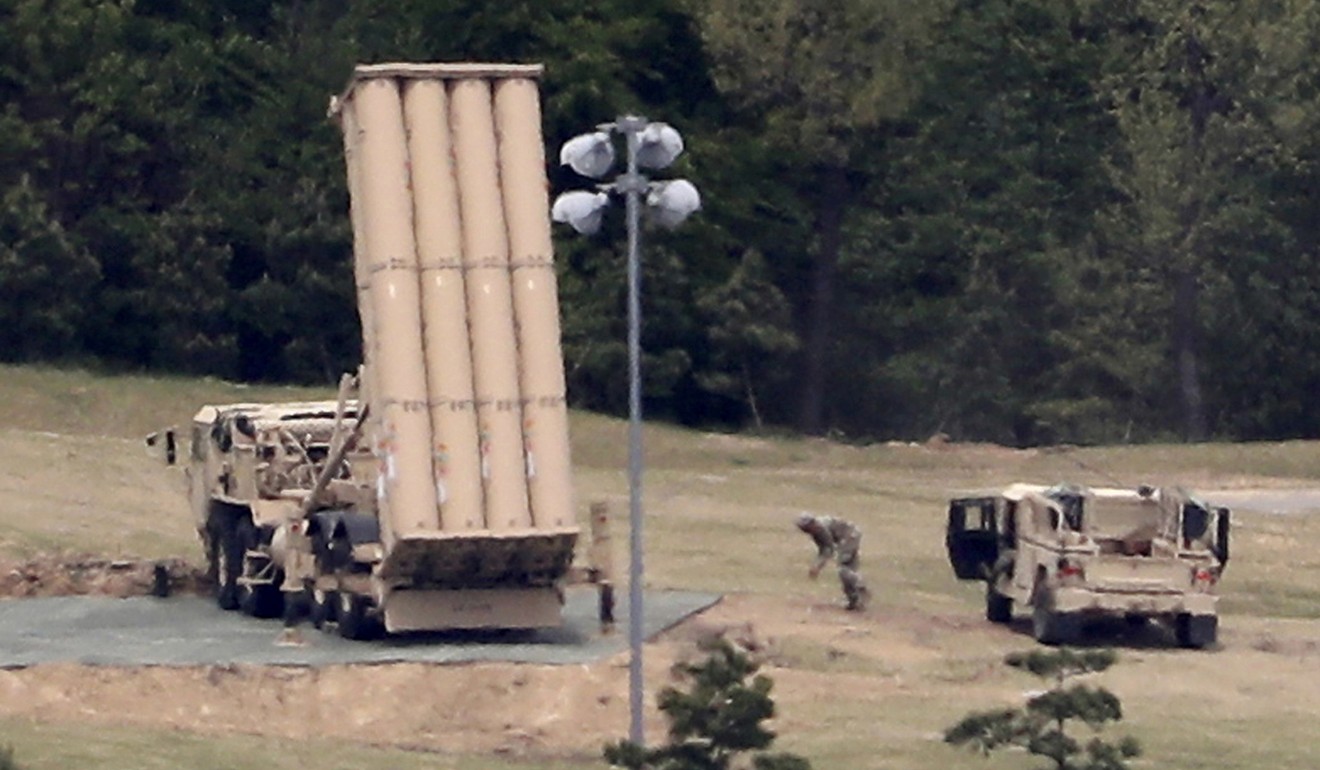
Donald Trump’s huge military bill for South Korea prompts fears of a US pullback on the peninsula
- The Trump administration is insisting South Korea accepts as much as a 50 per cent increase in what it pays for US military protection
- The dispute caused their cost-sharing deal to lapse in December 31 and, if it’s not renewed soon, South Korean civilian personnel will face furloughs
Just as President Donald Trump looks to make peace with North Korea’s Kim Jong-un, his administration is putting fresh strain on the US’s seven-decade alliance with South Korea.
The prospect of getting a deal before an April 15 deadline seems poor, according to a South Korean official familiar with the talks. South Korean President Moon Jae-in’s negotiators have sought help from people outside the direct talks, including US Secretary of State Mike Pompeo, said the official, who asked not to be named due to sensitivities of the discussions.
Why Vietnam is the perfect place for next Trump-Kim summit

A State Department spokesperson said Friday that South Korea must contribute “significantly more” more than has offered to achieve what the administration believed was a fair balance of costs. The administration is asking all its allies to offset the cost of US deployments overseas, said the official who spoke on the condition of anonymity.
North Korea’s Kim Jong-un tells of ‘great satisfaction’ at plans for second summit with Donald Trump, praising US leader’s ‘positive way of thinking’
“My main concern is a possible perfect storm where Trump’s desire to withdraw troops will be reinforced, if he is misled to believe he can trade them for North Korean nuclear weapons and if the allies can’t settle defence cost negotiations before the next Trump-Kim summit,” said Duyeon Kim, an adjunct senior fellow at the Centre for a New American Security.

“This would be an immediate crisis for South Korea that trumps North Korea’s nuclear weapons threat.”
The cost-sharing dispute was among the security issues left unresolved when former Secretary of Defence James Mattis resigned on December 20, citing differences with Trump over the value of alliances. The pact, which lasts five years and requires legislative approval by both nations, expired 11 days later.
Next US-North Korea summit must give concrete results, South Korea’s top diplomat says
While the US does not detail South Korea’s contribution to the deployment, American officials have said Seoul subsidises about half of its local personnel costs. South Korea said it paid an estimated 960 billion won (US$849 million) last year, financing the construction of US military facilities and paying South Korean civilians who work at military posts.

With the deal about to expire, the US suddenly requested 1.4 trillion won (US$1.2 billion) from South Korea, lawmaker Hong Young-pyo, the Democratic Party’s floor leader in the National Assembly, told ruling party officials Monday.
“It is undesirable that one country’s unilateral demand undermines its ally’s trust and causes divisions,” Hong said.
The real crisis will not hit until April 15 when South Korea is expected to start paying civilian personnel.
“We are both very keen to get to agreement as quickly as possible,” South Korean Foreign Minister Kang Kyung-wha told CNN on Thursday. “It’s still a back and forth. We are not there yet, but we are very much hoping to close the gap.”

